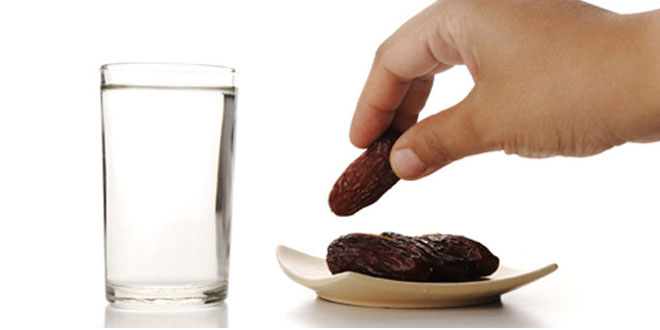
Staying hydrated during Ramadan
The human body is made up of 60% water. Water has a lot of importance in maintaining the functions of our body.
Water is the medium that makes the blood liquid, and other body fluids like saliva, spinal cord fluid. Electrolytes are also transported via water. Electrolytes are minerals such as sodium, potassium, chloride, calcium and magnesium. These are ions that help transport the glucose and amino acids in and out of the cell. Water also neutralizes the pH balance of the body.
Lack of water causes muscle cramps, headaches, lethargy, and dizziness. You need to store as much water as you can in your body to function throughout the day. So, with all these functions that water enables our body to perform, how do we keep enough of it inside our body during fasting? Water is important for the body, especially in Ramadan.
Drink Water
- Before starting Sehri, be sure to consume at least two glasses of water. Drinking more than two glasses is even better. (Make sure this is before you have eaten anything)
- Try to steer clear of juices as they carry more weight, which may cause you to start feeling stuffed before having eaten enough to keep you going through the day
- Sodas (carbonated drinks)
- Drink water in the time between iftar and sehri. If you are heading out, keep a bottle of water with you, and keep sipping water throughout the night
Broth Based Soup
- You can have a good healthy vegetable soup for iftari. It not only contains water but also has electrolytes that are very important for muscle function and nerve functions.
- Vegetable soup contains 98% water.
- The sodium and potassium in the soup will help you gain your lost energy in no time.
Foods with Potassium
- Potassium is a very important molecule. Lack of potassium can have bad consequences and can causes kidney damage.
- Potassium will cause the water to go to your organs instead of sucking it in the bloodstream. This way your organs will get the water they need.
- Potatoes are high in potassium, yogurt, leafy greens like spinach and squash, fish, avocados, mushrooms, green French beans, are all high in potassium.
Foods Rich in Water
- As much as we love the deep fried samosas, they don’t help with hydration. Foods like peaches, cabbage, grapes, carrots and berries should be taken during sehri and iftari to help achieve hydration.
- Watermelons have 92% water. Put some watermelon in a food processor, add a tiny bit of sugar and blend. You will get a good watermelon drink with all the necessary fiber content.
- These foods will also be good anti toxins. The anti toxins necessary for removing radicals from your body.
Take Showers
Symptoms of dehydration include dizziness, lethargy, headache etc. Cold showers will help cool down your body.
Avoid Artificial Drinks
God has blessed us with natural drinks and juices, so don’t waste your money on something that might actually be harmful in the long run. According to Dr. Akili in Houston, one should take water and sea salt (only) and drink that to replace electrolytes. We do not need Gatorade, Powerade, Vitamin Water, flavored water, juice or soda to replace natural electrolytes. These beverages have a ton of coloring and added substances that are not normal and they won’t hydrate you as well as water and fruit juice would. The colors in these drinks are manmade food colorings. The body has to do a lot of work to get rid of these colorings; this extensive metabolic activity causes a loss in body water content.

